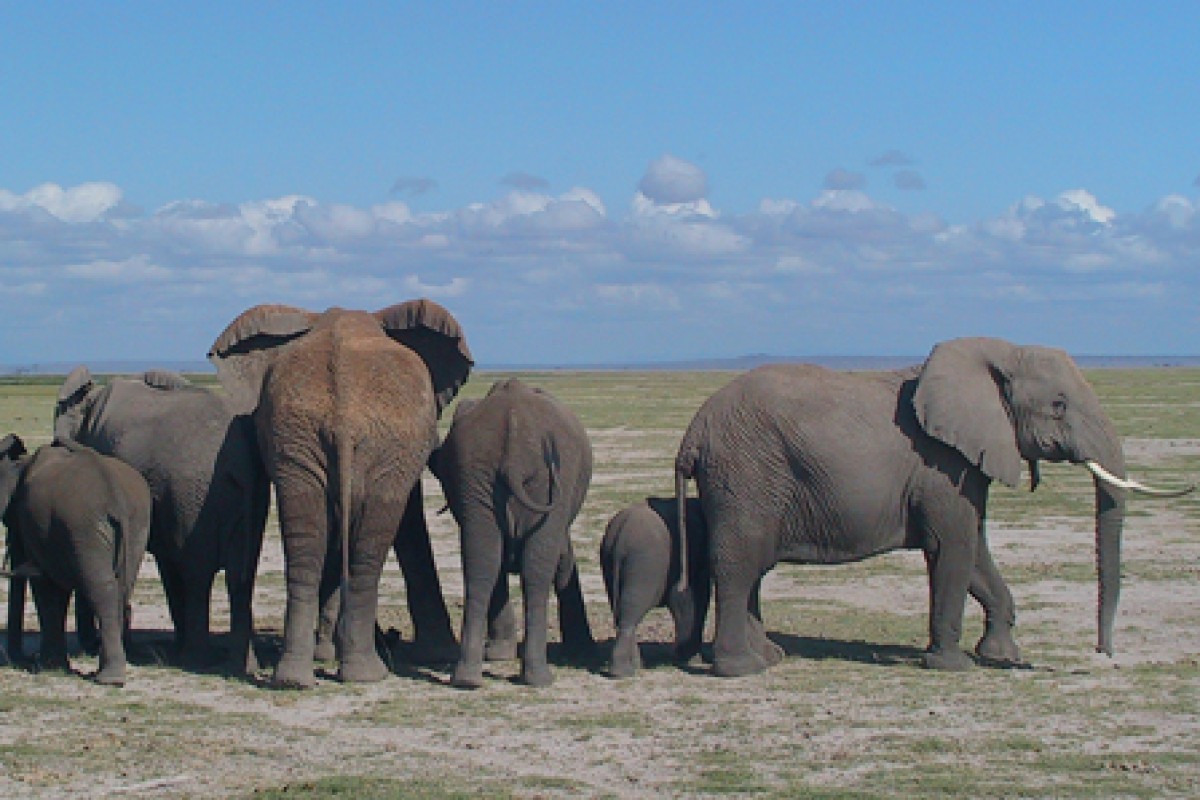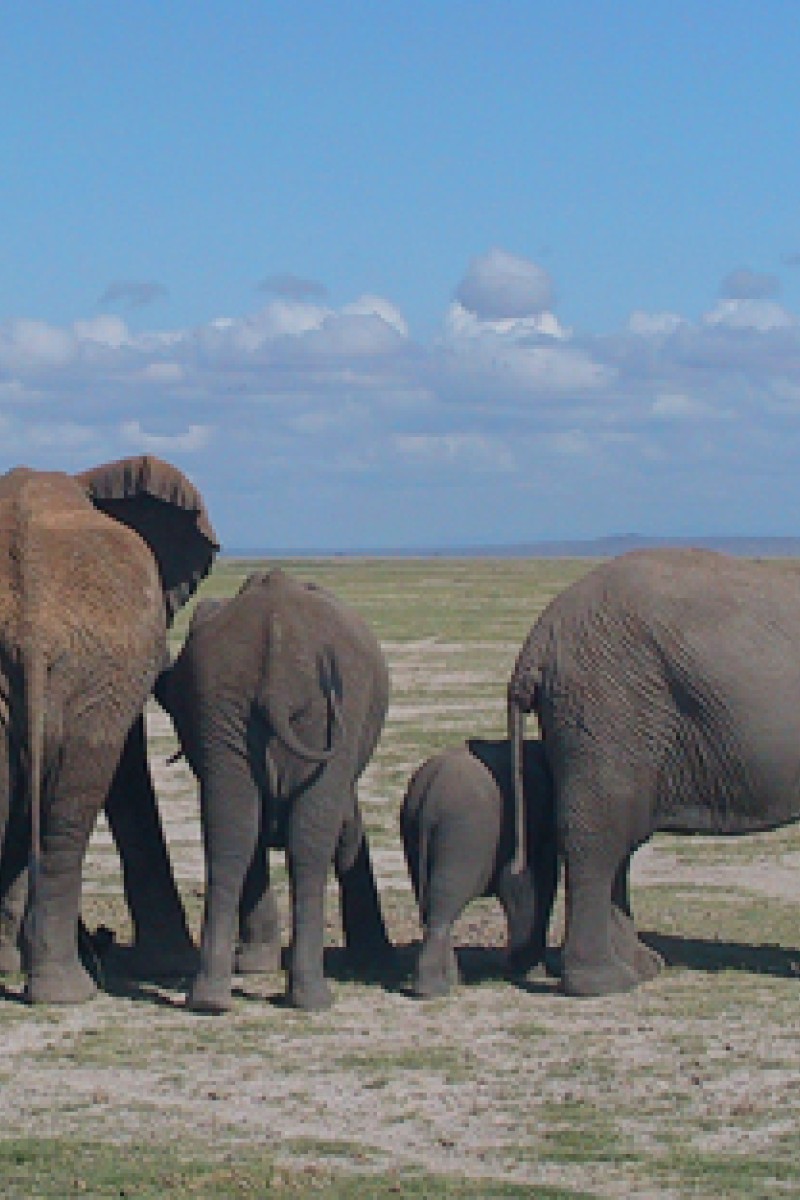
If you were in the vicinity, as scientist Joyce Poole often is, you might get involved in the elephants' typical game: they charge at your vehicle, only to trip, fall over and sink their tusks into the earth before they reach you.
Poole, co-founder of research and conservation group ElephantVoices, has studied the area's elephants for almost 40years. She used to think it was embarrassing to see her giant friends losing their balance.
"I have seen it so many times [I know] it's all part of a joke," she told Young Post while in Hong Kong last month as part of a trip to improve elephant welfare at mainland zoos. "It is one of the types of behaviour that led me to say that elephants have a sense of self and a sense of humour; they know they are funny."
She and her husband, Petter Granli, have successfully deciphered hundreds of different elephant sounds and examples of body language, and compiled the information into an online database.
She hopes sharing her understanding of elephants' sophisticated thinking and social structure will encourage people to love the animals and stop their deaths at the hands of poachers.
With a large brain-to-body ratio, elephants are ranked among the cleverest in the animal kingdom - behind bottlenose dolphins, killer whales and chimpanzees. Their ability to pull pranks, empathise, recognise themselves in a mirror, co-ordinate attacks, retain long-term memories and solve problems marks them out from other mammals and draws them closer to humans.
Although elephants don't talk like humans do, they can still hold fierce discussions. For example, when an elephant wants to change the family's itinerary, it will point its body to its favoured direction, make repeated low frequency calls and lift its feet, inviting others to follow.
If they come to a consensus, they huddle and touch each other's faces as if to consolidate relationships.
Yet the group doesn't always agree. Poole said one family had a 45-minute debate as different members rumbled, walked further apart and pointed to other paths.
At other times, they will agree to disagree, split up for the day, then meet later. "They can recognise each other's voices up to two kilometres away so are able to find each other."
When humans feel embarrassed or nervous, we fiddle with our hair, bite our nails or put one hand on our chest; elephants do the same. Poole said if an elephant is unsure of what to do, it will touch its face with its trunk to give reassurance or comfort. This gesture can be traced back to what adult elephants do to their young.
"When babies are in distress, they will wrap their trunks around the child or touch its mouth."
Poole said elephants also do this to inspect a gland, which will secrete a liquid at stressful times. "It's almost to check 'how am I?'," she said.
Elephants are empathetic - they understand death, Poole said. If an elephant in the family is sick or dying, others will try to lift or feed it or cover the body with branches. Elephants also pay homage to the dead.
"They come back so many times that there are trails leading to the dead body or skull - which last a long time [after decomposition]," Poole said.
Elephants have very strong family bonds. If a mother dies, calves younger than two years old will not survive because they depend on her milk, she said.
Orphaned calves have a greater chance of mortality even up to the age of 10 because they have no role models and suffer from post-traumatic stress disorder.
Elephants also know they are hunted for their tusks, Poole said. She once asked rangers to remove the tusks of a female elephant that died of natural causes, to prevent poachers from taking them.
Two bull elephants, who had visited the female before her death, returned to find her face disfigured. Poole believes they detected the scent of humans on the wound.
"When this happens over and over again, I believe they understand that people were responsible," she said.
You might also like:
- One 12-year-old girl started a remarkable campaign to help vulnerable rhinos in Africa
